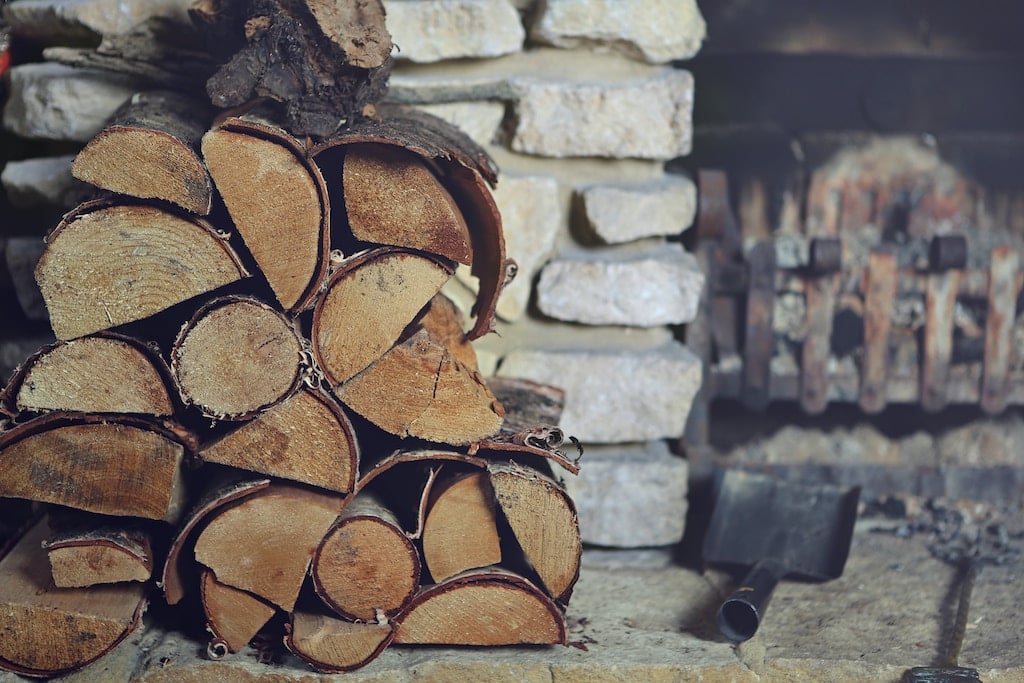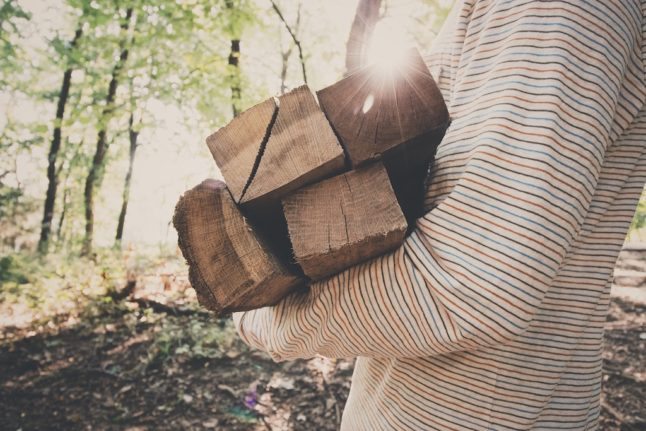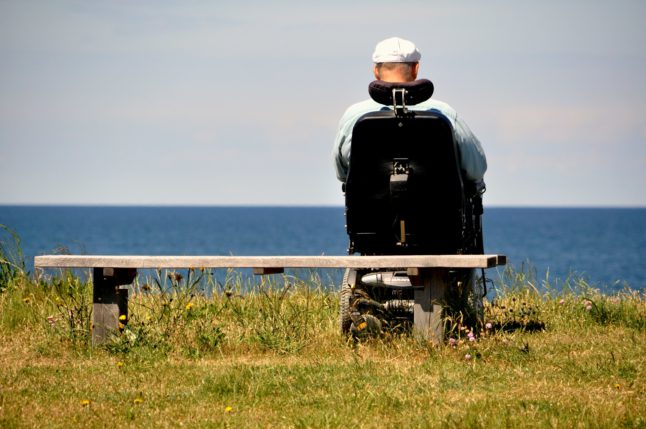Millions of Spanish households heat (or at least partially heat) their homes with wood or wood pellets, but these pellets can be expensive.
According to the Association of Consumers and Users (OCU) only around 24.3 percentage of homes in Spain have central heating.
While collecting logs or leña yourself sounds like an appealing money-saving option, it can be complicated legally and could put you at risk of a fine.
According to Greenpeace Spain, 28 percent of the forested area in the country is public (belonging to the State, autonomous communities, and local entities) and the remaining 72 percent is private.
If a forest is private it is forbidden to collect wood, unless you have permission from the land-owner.
While walking through a private forest is not treated by the law with the same gravity as trespassing, collecting wood in these areas can still be classified as theft. If you are caught taking wood from private land without permission, then you could end up paying a hefty fine. The amount would depend on which area of Spain you were in.
READ ALSO: Why are Spanish homes so cold?
Private land and forests should be marked by signage, particularly at the entrance.
When it comes to public forests and land, things start to get a little more complicated as the rules can vary between each region in Spain. Not only that, but they can even vary according to each municipality.
The best option for finding out for sure if you can collect firewood in your area is to contact your local ayuntamiento or town hall directly.
Only some regions have published the general rules that you should follow and many require special authorisation in order to collect wood first.

Madrid
According to the Madrid government website: “If you are a resident of a town in the mountains, you have the right to collect wood to satisfy part of your energy needs… A forestry agent will help on many occasions for this to be done according to the technical criteria of the Forestry Administration”.
The Madrid forestry agents confirm that “there is no problem in removing dead wood from a forest, as long as it is public and no type of machinery is used in order to avoid sparks that may cause forest fires”. They warn, however, that you may need authorisation from the corresponding city council first, otherwise, you could risk a fine from the Civil Guard.
The local Madrid Civil Guard on the other hand states that no authorisation is necessary as long as you’re collecting dead wood and the forest is not private or protected.
Valencia
The Valencia government website states that people “must notify the forestry administration through a responsible declaration of the use of firewood intended for their own consumption”.
Aragón
According to the official Aragón government website, you can collect firewood for your own use if it’s less than 15 metric tons. The forestry authorities in your area must be contacted at least one month in advance of the planned date of wood collection.
Castilla y León
Collecting firewood for domestic use is regulated by the Junta of Castilla y León. In order for it to be legal, you must first request an authorisation. If you want to collect anything less than 10 cubic metres for domestic use, this will be a relatively easier procedure. For anything else it may be more complicated.
Catalonia
The Society for the Conservation of Nature and Animals states that collecting firewood in Catalonia is allowed, but that you must notify the Department of Agriculture through a particular form – ‘Communication of forestry use of wood and firewood for domestic use’. Once your authorisation is presented, the rural agents will contact you to mark the trees that you can cut and the conditions that must be met.
Castilla-La Mancha
Castilla-La Mancha introduced new firewood rules earlier this year to make it simpler to collect it for domestic use. This should equal less than five cubic metres. You will only need a sworn declaration and the approval of environmental agents, instead of having to request an authorisation and pay a fee as was the norm before the change.
Andalusia
The authorisation procedure in Andalusia is for the domestic use of wood, firewood, cork, stone and pine cones, on private forest lands when you are not able to get approval from the land owners themselves. For public forests, it’s best to contact your own town hall or forestry organisation.
Canary Islands (specifically Gran Canaria)
In Gran Canaria, the authorisation for collecting dead or fallen wood is lodged with the Cabildo of Gran Canaria. The website states: “For domestic use (small quantities): An application must be submitted that will be sent to the corresponding email according to the area chosen for the removal of the debris and firewood and the corresponding permit must be obtained to transport the remains”.



 Please whitelist us to continue reading.
Please whitelist us to continue reading.
Member comments